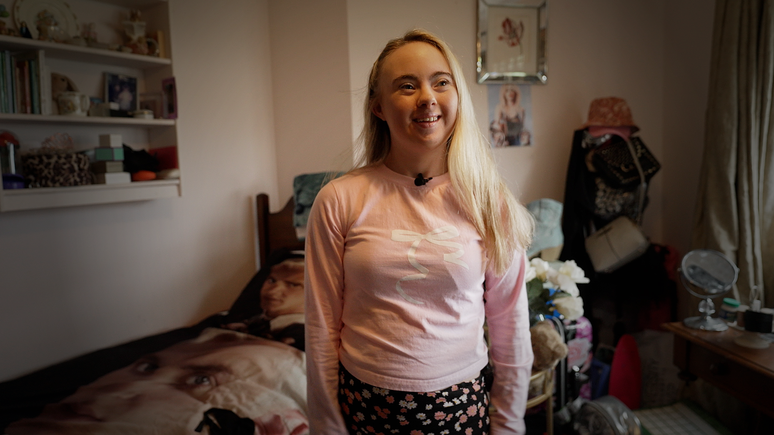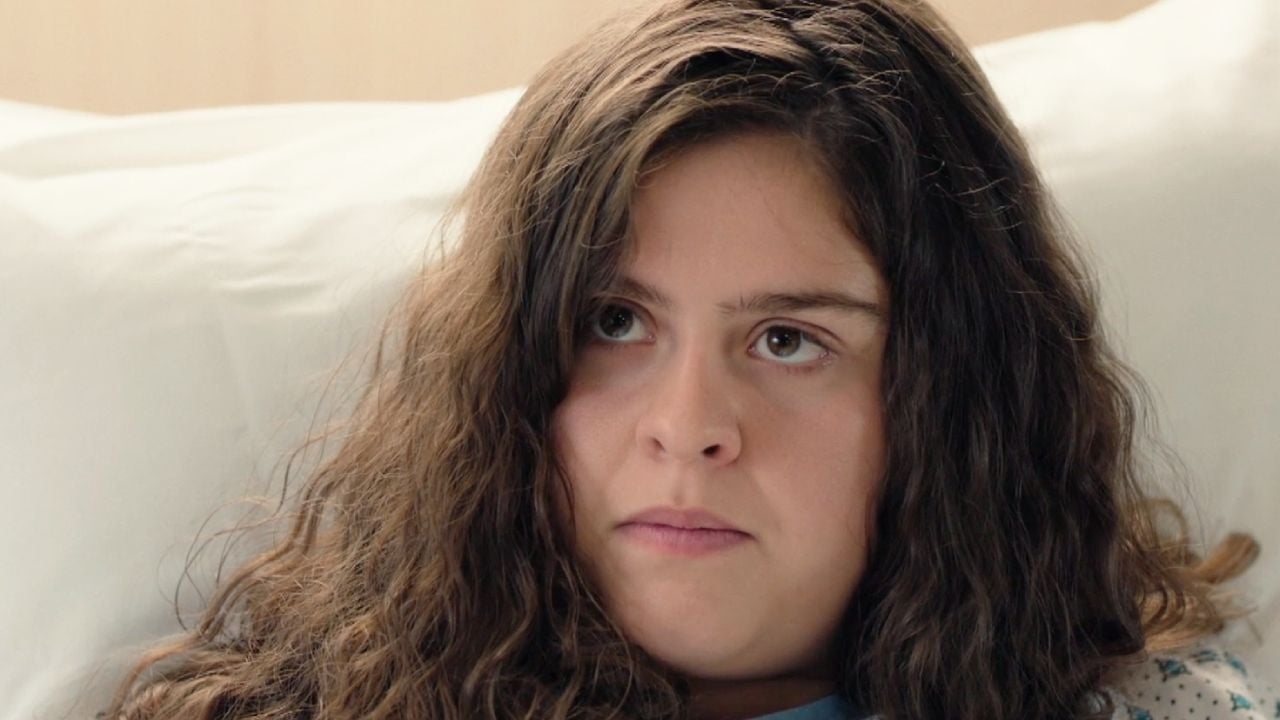A group of young disabled friends are trying to “change the system” and build their own shared home to live with carers in Wales.
“Get a job, fall in love and have my own place.”
These were the life ambitions Ellie Lane listed after her mother’s cancer diagnosis sparked a serious conversation about her future.
There are fears of what will happen to thousands of adults with severe learning difficulties when their parents die.
75% of these adults are thought to have never left home, having always lived with their family, according to the charity Mencap.
But a group of young friends with disabilities are trying to “change the system” and build their own shared home to live with healthcare workers.
At her mother’s house on the Gower Peninsula in Wales, Ellie is keen to show off her room.
The furniture is all inspired by the saga Harry Potter.
The 24-year-old’s favorite character, Draco Malfoy, appears on life-size bedsheets, posters and cardboard cutouts.

Ellie hopes to bring this collection into her home soon.
Not long ago, her mother, Jane, was diagnosed with cancer.
It was the kind of health issue that gave rise to a serious conversation, the topic of which was: What exactly did Ellie want out of her life?
The answer was simple, as Jane explained:
“He had three ambitions. The first was to fall in love. The second was to find paid work. And the third was to leave home.”
Ellie’s impeccable work uniform and smiling photos with her boyfriend prove that she has managed to achieve her first two ambitions.
The last one, however, as for many people, proved to be much more difficult.
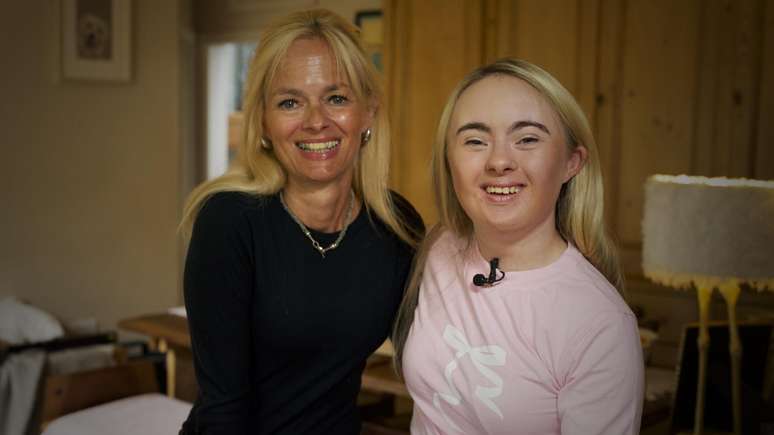
Ellie has Down syndrome and type 1 diabetes, so she will need support wherever she goes.
Although adults with learning difficulties can turn to local authorities for accommodation, options are limited, according to Jane, a recently retired nurse.
Ellie would have no decision-making power over where she would go or who she would live with.
According to Mencap, around three-quarters of adults with severe learning difficulties still live in the family home – and their parents often tell the charity they expect them to outlive their children, for fear of where they might end up.
The cancer diagnosis gave Jane a new “focus” and she found a group of similar families nearby (many of them Ellie’s former school friends) who were trying to start something called a housing cooperative.
It is a type of housing that has existed since the 1800s and includes homes shared between groups of people with the same interests, such as those who want to live self-sufficiently.
Each resident has an equal share of the home and has a say in how it is maintained and who else lives there.
After almost seven years, the group believe they are months away from legally becoming a housing association, which will allow them to access housing subsidies to build their own home, without families having to invest money.
The group, made up of eight families, wants the model to offer their children a replacement family, as well as a safe place to live after their parents pass away.
For Ellie and her friends, the plans are more immediate.
They are looking for somewhere close to the center of Swansea in Wales, ideal for a night out with friends.
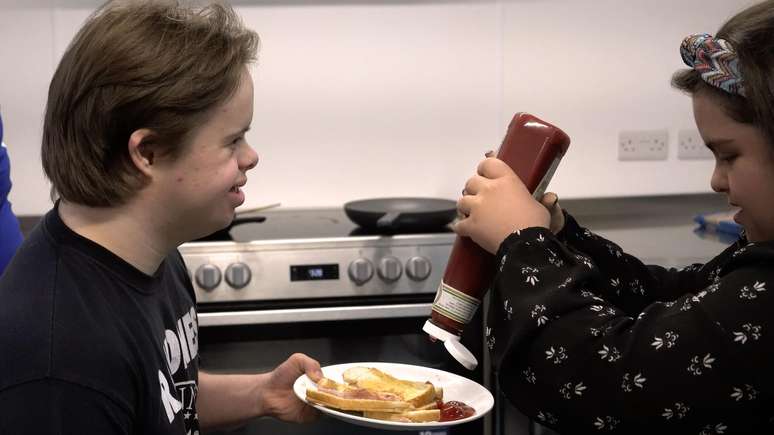
They would like to have their own bedroom and bathroom, but share the kitchen and living room, with space for home care workers.
“I just want my space and have the time of my life,” says Ellie.
“We could have a ladies-only meet-up or a ladies-only night out.”
“I just want to be more independent.”
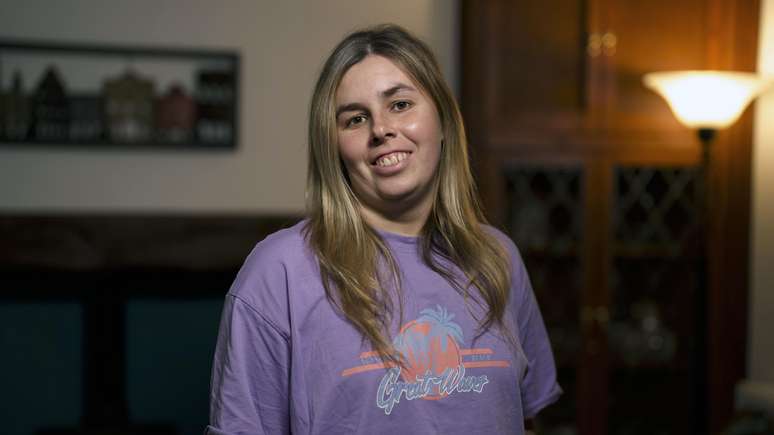
Elin, 26, plans to live with Ellie.
Her mother, Alison, also accelerated her search for a long-term home for her daughter after becoming seriously ill.
“One of the things Elin always asked me was, ‘Who will take care of me when you’re gone?’” Alison, 59, explains.
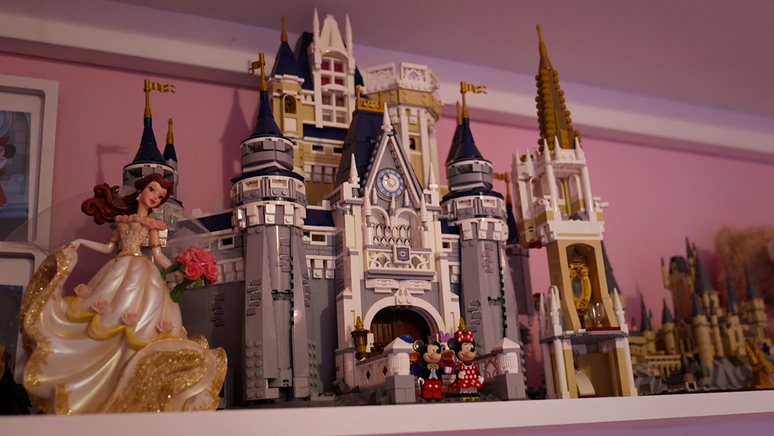
“She loves Legos and she loves Disney. She enjoys life, but we’re 30 years older than her. It’s not ideal for a 26-year-old woman to spend all her social time with her parents.”
The expectation is that young people will find themselves in their new home in 2026.
Currently the group meets once a month to practice cooking, as well as talk about decorating.
Alison said the parents had considered trying to fund the project themselves, but realized they ran the risk of being tied into their children’s lives long after they were able to help them.
“We want this to be a new way of doing things, a system-changing way,” Alison says.
“I hope they die before me”
In Wales there are around 16,000 adults with severe learning difficulties, but only 4,000 of them live in supported accommodation.
The remaining 12,000 (75% of the total) are believed to still live with their families.
“What always surprises us is when families say, ‘I hope they die before me,’” explains Wayne Crocker of Mencap.
“Having to think about this is a terrible thing for a parent.”
Crocker says the issue of accommodations for people with severe learning disabilities is “complex”.
“Many people live with their parents until, unfortunately, they die,” he says.
“For many this means that, in addition to the shock and sadness of the sudden loss of a mother or father, they must also find emergency accommodation.”
The Welsh Government said it was “committed to improving accessibility to social housing” and had invested in building new homes to this end.
It added that it had given grants to local authorities and housing associations to adapt the homes.
Source: Terra
Ben Stock is a lifestyle journalist and author at Gossipify. He writes about topics such as health, wellness, travel, food and home decor. He provides practical advice and inspiration to improve well-being, keeps readers up to date with latest lifestyle news and trends, known for his engaging writing style, in-depth analysis and unique perspectives.

